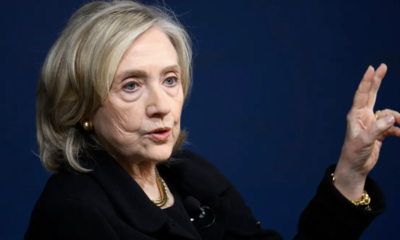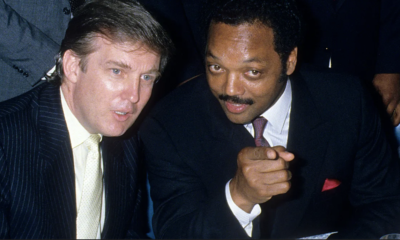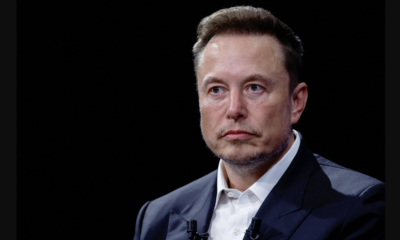Democracy
Elon Musk and Vivek Ramaswamy to Head Trump’s New ‘DOGE’ Department, Pledge to Slash Government Waste!
President-elect Donald Trump announced that entrepreneur Elon Musk and former GOP presidential candidate Vivek Ramaswamy will spearhead a new initiative named the “Department of Government Efficiency” (DOGE). The name, a nod to Musk’s well-known enthusiasm for the cryptocurrency Dogecoin, aligns with Musk’s and Ramaswamy’s mission to drive large-scale government reforms to reduce inefficiency, wasteful spending, and bureaucracy. However, despite the official-sounding title, DOGE is not a formal government agency. Instead, Musk and Ramaswamy will work in an advisory capacity from outside the government, offering their insights directly to the White House.
Donald Trump’s vision for DOGE includes partnering with the Office of Management and Budget (OMB) to develop and recommend strategies to streamline the federal government. By keeping Elon Musk and Vivek Ramaswamy external to the federal workforce, Trump’s administration aims to avoid the constraints of federal employment requirements, such as asset disclosures and divestments. As private advisors, they won’t be bound by the same ethical restrictions that regulate formal government positions, allowing them potentially greater freedom to approach government inefficiencies without bureaucratic limitations.
— Elon Musk (@elonmusk) November 13, 2024
Musk, known for his ambitious approach to cost-cutting and efficiency within companies like Tesla and SpaceX, has been vocal about his belief that substantial savings can be achieved within the federal government. Earlier this year, he estimated potential savings of up to $2 trillion—a claim that aligns with Trump’s goals for DOGE (Department of Government Efficiency) , which seeks to eliminate government waste and streamline federal operations. Trump has been enthusiastic about Musk’s role, though he noted Musk’s availability could be limited given his various commitments. “He’s a little bit busy sending rockets up and all the things he does,” Trump quipped at a rally, adding that Musk’s “cost cutter” skills are uniquely suited to the challenge.
Meanwhile, Ramaswamy brings a blend of private-sector experience and policy acumen, having risen to prominence with his platform focused on reducing government overreach. Known for his calls to streamline regulations and his sharp critiques of government inefficiencies, Ramaswamy suspended his own presidential campaign in January and endorsed Trump, making him a natural fit for the DOGE initiative.
Public reactions to DOGE have been mixed, with some critics questioning the effectiveness of an external advisory body in reducing government inefficiency. Others have expressed concerns over the lack of federal oversight, pointing out that since Musk and Ramaswamy are not formal government employees, they won’t be subject to traditional checks and balances. Transparency advocates have raised the possibility that DOGE’s operation may fall under the Federal Advisory Committee Act, which governs external advisory groups but would still leave considerable room for discretion in how DOGE operates.
In response to these concerns, Musk took to social media, playfully dismissing criticisms. “Threat to democracy? Nope, threat to BUREAUCRACY!!!” he posted on X, followed by a promise that DOGE merchandise would be “fire.”
Afuera! 🔥 https://t.co/aw9PACs1Lf
— Vivek Ramaswamy (@VivekGRamaswamy) November 13, 2024
As Elon Musk and Vivek Ramaswamy begin their advisory roles, they are expected to target excess regulations, restructure federal agencies, and eliminate redundancies within government operations. With plans to “shock” the government system, Trump’s DOGE initiative sets the stage for an unprecedented approach to government efficiency—one that, if successful, could become a hallmark of his administration.








































Pingback: Backlash Over Elon Musk Salute at Trump Rally, He repsonds
Pingback: Elon Musk’s DOGE Cancels Politico’s $8 Million Govt. Funding
Pingback: Grimes Slams Elon Musk for Bringing Son to Trump’s Oval Office
Pingback: USPS to Cut 10,000 Jobs Under Donald Trump Elon Musk’s DOGE
Pingback: Las Vegas Facility Torched, Elon Musk to deal with Tesla Takedown